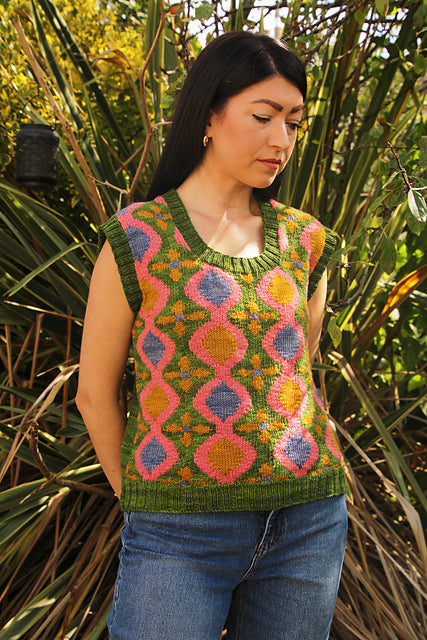It's Fall, y'all, and even though the leaves are turning orange and red in our part of the country, we are all about green this month for HerStory, as we delve into the life and activism of Wangari Maathai and her founding of the the Green Belt Movement.
Born in Nyeri in rural Kenya in 1940, Wangari Maathai truly did it all. She was a pioneer in practically everything she did, and seemed to be collecting firsts: she was the first woman ever in East and Central Africa to earn a doctorate degree; the first woman ever to chair a department at the University of Nairobi, and the first woman ever to become an associate professor there. She was also the first African woman to win a Nobel Peach Prize for "her contribution to sustainable development, democracy and peace." After earning degrees in America, she returned to Africa and became active in pro-democracy politics in her native Kenya. It was during her time chairing the National Council of Women of Kenya in the late 1970s that she began her work on what would become the Green Belt Movement, which was to become her most lasting legacy.
As she became more involved in advocacy groups such as the National Council of Women and the Kenya Red Cross Society (which she also directed) in Kenya, she realized that many of the problems she was seeing in her beloved home country were a direct result of environmental degradation. She was inspired to create a business that provided the seeds (see what we did there?) for the Green Belt Movement. Envirocare sought to connect ordinary Kenyans, particularly women, with the means to plant fledgeling tree nurseries, paying them to look after these nurseries. Even though Envirocare did not ultimately succeed, it was because of this work that Maathai was inspired and able to create the Green Belt Movement.
The Green Belt Movement was and is a grass-roots environmental organization with the goal of empowering people, mostly women, in rural communities to work at both environmental conservation and building their own food supplies toward more self-sustainability. This is achieved by community seed-planting and - stewardship, which in turn helps to build and protect soil and rainwater retention. Participants receive training and a small stipend for each seedling planted, and their community enjoys environment benefits from replenishing and rebuilding the soil. The main thrust of the movement is for communities to take control of their own destinies, by working together to address their specific needs.
Throughout all of this, Wangari Maathai had a personal life, too: she married, had three children, and ultimately divorced. Readers of this letter will be unsurprised to learn that her husband wished for a divorce because she was difficult to control, and even went so far, in the divorce proceedings, to accuse her of adultery and state that the worry over that caused high blood pressure. The (male) judge ruled in Wangari's husband's favor, which inspired her to wonder, in an interview, if he was corrupt or incompetent. The judge THEN charged her with contempt of court AND SHE WAS FOUND GUILTY AND SENTENCED TO SIX MONTHS IN JAIL!!! Whaaaaaaaaa…..? Fortunately, her lawyer was able to spring her after only three days, but seriously??? Once she was out of jail, her ex-husband demanded she stop his surname, to which the seemingly salty and, we're sure, fed up to her eyeballs Wangari responded by merely adding an extra "a" to the name, effectively changing it.
There is so much more to talk about with this amazing HerStory recipient (as there have been for every single one so far this year)… For instance, during her time at the University of Nairobi, she campaigned for equal rights for women, and even attempted to form a union in the hopes of gaining more bargaining power. Although the union was thwarted, the seeds of equal rights were planted, and much of what she was pushing for was eventually adopted by the university. And, because of her ethnic heritage and advocacy for a democratic Kenya, a lot of what she tried to accomplish politically was thwarted once Daniel arap Moi was elected president in the late 1970s.
In the 1980s, the government started attacking the Green Belt Movement, partly because it was such a democratic organization, and the government was swinging closer to authoritarianism (sound familiar?). As Maathai became more political and more outspoken against the ruling power, she was targeted by the government, called "a crazy woman" who ran a "bogus organization" run by a "bunch of divorcees." Resolved to fight for democracy and fairness, she was arrested in 1992, after her name was discovered on a governmental hit-list, and after barricading herself in her house for three days. She took part in a hunger strike (along with other mostly-women protestors) shortly after being released from jail, and, along with her fellow protestors, was attacked by the police so forcibly that hospitalization was necessary. She was again called "a mad woman" by the president of the country (can you imagine the president of a country personally attacking a private citizen? Oh, uh… nevermind). Through all of this, she continued to fight for democracy and environmental stewardship, and helped to get the National Rainbow Coalition on the ballots and winning in Kenya. She was elected to serve in the Kenyan parliament, and founded the Mazingira Green Party of Kenya in 2003, fostering environmentalism in politics. She was awarded the Nobel Peace Prize in 2004. We love her. Sadly, she passed away in 2011 at the age of 71 from complications arising from ovarian cancer.
There is so much we weren't able to cover, because Wangari Maathai had a multi-faceted life that won't easily fit into two pages. We encourage you to check out the Green Belt Movement (https:// www.greenbeltmovement.org), read her books, watch the documentary on her (called Taking Root: the Vision of Wangari Maathai), and if you can, donate. Our colorway is inspired by her work in the Green Belt Movement, and we're calling it Unbowed, after her memoir.










